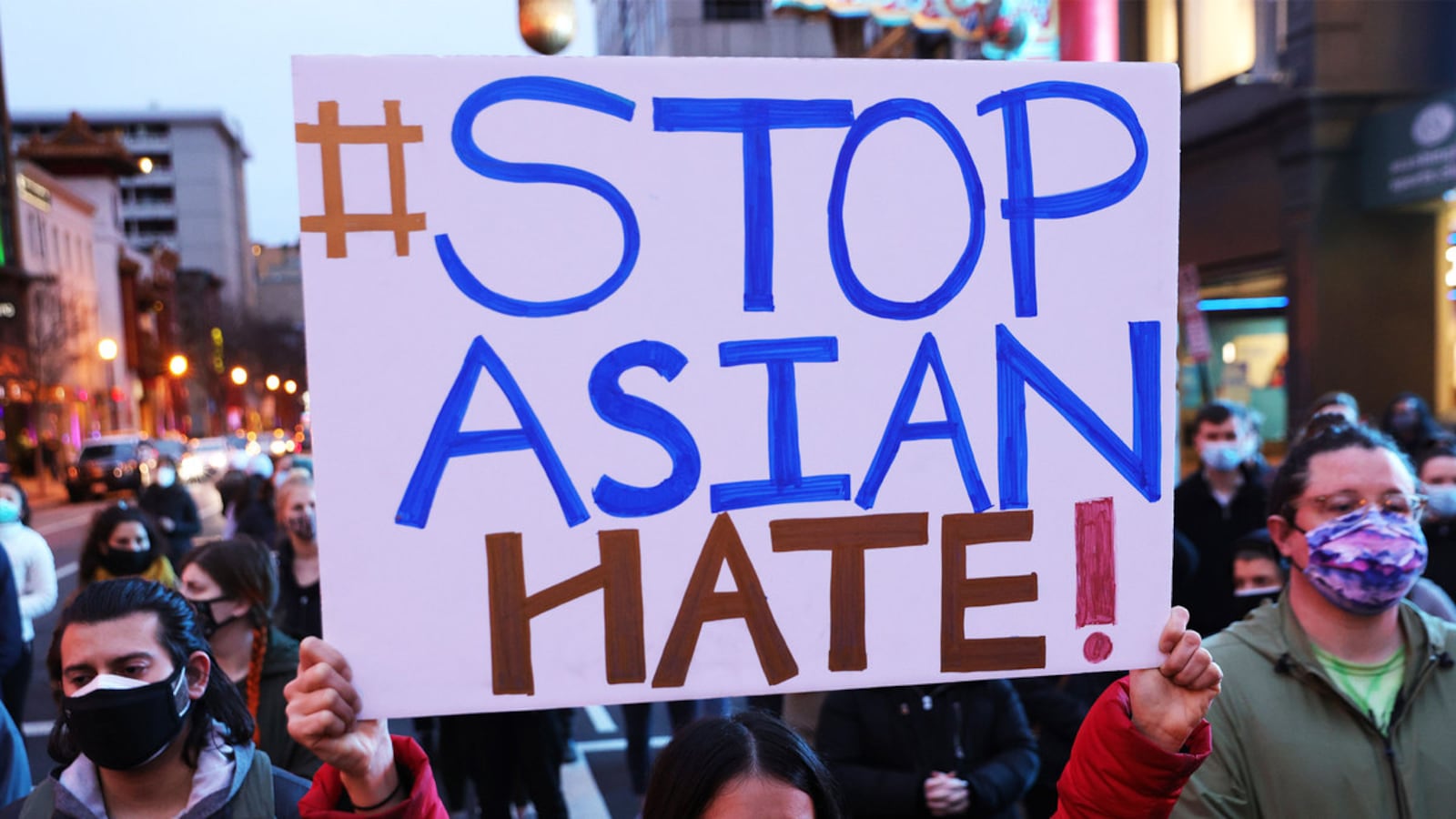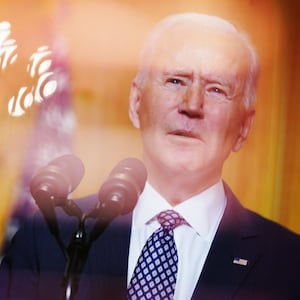Since America became an international power, every generation has had its bogeymen. These have not just been enemies we confronted on the battlefield. In virtually every case such a foe or potential foe existed, we sought not just to stand up to them in geopolitical or military terms, but to vilify them. We have time and time again waged wars not just on nations but nationalities.
We need to understand this because we are in the process of doing it again—this time as part of emerging rivalry and deeply complex relationship with the People’s Republic of China.
The consequences have been profound both at home and abroad. America has had a powerful impulse to wage war not just on the air or land and sea, but via the airwaves, in churches and classrooms and newspapers. Virtually all of our major conflict and rivalries have been accompanied by culture wars. Racism, ugly stereotypes, dehumanization, and othering have been used to build political will to support defense expenditures, dangerous overseas adventures, wars of choice and wars we could not and should not have avoided.
The consequences of these approaches in the past have turned perceptions of enmity or rivalries into self-fulfilling prophecies. They have led to grotesque human rights abuses, political demagoguery, unnecessary conflict, social wounds, blows to our standing, and to making good foreign policies harder to implement.
Immigrants, particularly those with foreign sounding names were arrested and harassed in the wake of World War I. During World War II, the Germans were joined by the Japanese atop our enemies list and a racist, nationalist frenzy led to the internment of 120,000 Americans of Japanese heritage. During the Cold War, the Russians and communists everywhere were again the enemy.
Racism again shaped our view and we used slurs to deride North Koreans and Vietnamese and Chinese who challenged us in foreign wars. In the wake of rising extremism in the Greater Middle East (and fears associated with our deep addiction to oil) and in particular in the wake of 9/11, the enemies we condemned were Arabs, Iranians or others in the region extending from North Africa to the Hindu Kush.
Now, as we seek to extricate ourselves from the broader set of misadventures associated with our profoundly ill-conceived “War on Terror,” there has been what was called during the Obama years a “pivot to Asia.” But this pivot has not just turned on the rising importance of the Indo-Pacific region or even of China itself, it has also turned on our seeming need to always have an enemy.
No doubt this is due in part to real Chinese threats and outrages. But some of this is because scapegoats are useful to politicians. Some is because perceived threats are essential to maintaining the will to fund America’s absurdly expensive military. And some, perhaps, is because we, as a nation separated from the world by two oceans, have always viewed the rest of the world with suspicion.
As a consequence, we have seen a rise in statements by public officials that seek to cast this new threat in old familiar terms. Republican Senator Rick Scott of Florida last year described it with his characteristic lack of nuance when he said, “There is a new Cold War. Communist China is an adversary.” Former Secretary of State Mike Pompeo went a step further, saying, in an address in Prague last August, “What’s happening now isn’t Cold War 2.0. The challenge of resisting the CCP (Chinese Communist Party) threat is in some ways worse.”
It was left then to former President Donald Trump to take it to the next level, to tap into racism as part of his response to the emerging rivalry. That was evident not just in his blaming the COVID-19 epidemic on China but in the way he did it, describing it over and over again as “the Chinese Flu” and fueling conspiracy theories that the virus was actually a plot cooked up in a Chinese laboratory to hurt us.
We have seen the results. As in the past, whether it was the Wilson Administration’s Palmer Raids in 1919 and 1920, rounding up mostly immigrants suspected of communist sympathies, or during the World War II internment of the Japanese or in the case of brown-skinned individuals being attacked for appearing Middle Eastern in origin after 9-11, America’s ugly impulse to impose the face of the enemy on our own neighbors has resurfaced. Anti-Asian hate crimes rose nearly 150 percent in 2020. A research report from the group Stop AAPI Hate showed almost 3,800 such incidents during this pandemic year. It would be a grave error not to see these attacks as a direct result of Trump’s incitement.
But as repulsive as these incidents are, we need to see them in the larger context as well, as a sign that we are entering a protracted era in which our rivalry with China and the potential for conflicts in that part of the world may well lead not just to more hateful acts but to an environment in which deepening global conflict becomes inevitable, in which treating a rival as an enemy makes complex challenges worse.
This is one under-discussed dimension of the reality described by Secretary of State Antony Blinken in a recent address, when he said, “More than at any other time in my career—maybe in my lifetime—distinctions between domestic and foreign policy have simply fallen away.” In the same speech, Blinken made it clear that the U.S.-China relationship looms large, calling it “the biggest geopolitical test of the 21st century.”
This week Blinken and U.S. National Security Advisor Jake Sullivan met with their Chinese counterparts for the first time in Anchorage, Alaska. A broad array of issues were on the agenda. The opening session was contentious. Blinken stated that the US intended to “discuss our deep concerns with actions by China, including in Xingjiang, Hong Kong, Taiwan, cyber attacks on the United States, economic coercion of our allies.” The Chinese shot back with critiques of past U.S. use of force and tried to deflect U.S. criticism of Chinese cyber-attacks. They also asserted that black Americans were being “slaughtered.” Blinken and Sullivan in turn went beyond prepared remarks to rebuff the Chinese, Sullivan saying, “A confident country is able to look hard at its own shortcomings and constantly seek to improve.”
The Chinese, later reinforced by accounts in their national media, criticized the U.S. for being “condescending.” The U.S. team clearly struck a nerve, providing a principled, strong defense of U.S. national interests and making it clear the era of the bombastic flaccidity of Trump is over. That said, as the talks continued behind closed doors, the expectation is that discussions of differences will be accompanied by an effort to identify areas in which the two sides can make progress working together including on trade, North Korea and climate issues.
U.S. officials will also condemn and seek to change unfair Chinese trade tactics even as they underscore the importance of the U.S.-China economic relationship. And, importantly, they will seek areas where the two countries can work together because on many international issues of importance there is no way to achieve global progress without U.S.-Chinese collaboration.
In this, Blinken and Sullivan will demonstrate a more nuanced view of the U.S.-China relationship than that of the previous Administration. As Blinken said in his previous address: “Our relationship with China will be competitive when it should be, collaborative when it can be, and adversarial when it must be. The common denominator is the need to engage China from a position of strength.”
It is not a strength to let racism or xenophobia or the dark impulses of past conflicts color such a vital relationship. Such approaches are not only profoundly wrong, they add danger and reduce our ability to make progress. They are among the reasons that President Trump’s own director of national intelligence, former Indiana GOP Senator Dan Coats, publicly challenged the idea of a new Cold War. Coats went further, underscoring that China is not only a major trading partner but is a major holder of our debt and “tightly interconnected in the supply chains critical to our (and the world’s) economy.”
In other words, as warily and intensively as we must approach the U.S.-China relationship, it would be a gargantuan mistake to treat it as we have past conflicts. It would be morally disastrous for us as a country to let Trumpist racism lead us down the path of nationalist excess. It would be a strategic mistake to ingrain the idea of the Chinese as an enemy into our culture because such a view fails to accurately capture the totality of the relationship and our interests within it.
We must find a different approach to those of the past century because they have done damage both to our interests as a country and to our soul as a nation. True global leadership requires better. Fortunately, Blinken, Sullivan and the new administration seem to recognize that.






